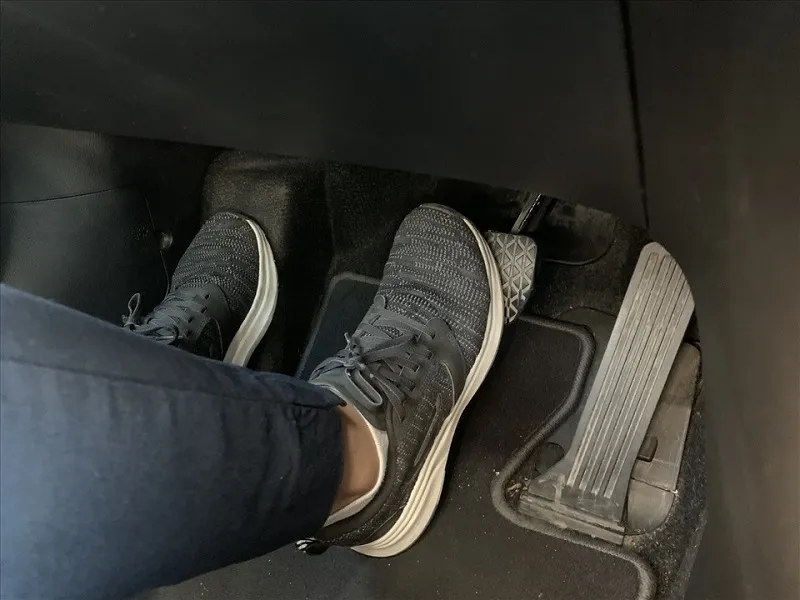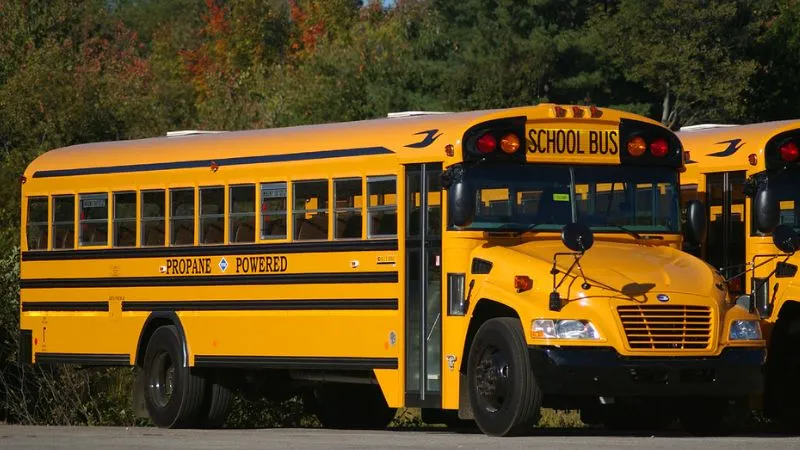Georgia, nestled in the Southern United States, is renowned not only for its vibrant cities and stunning coastlines but also as a wilderness paradise for hunting and fishing enthusiasts. Boasting diverse ecosystems ranging from majestic mountains to dense forests and extensive coastlines, Georgia offers countless opportunities for exciting outdoor activities. If you’re seeking an ideal destination to indulge your passion for hunting and fishing, Georgia is undoubtedly a top choice. This article shares valuable insights to ensure you have a memorable hunting and fishing trip in Georgia.
To embark on your journey exploring Georgia’s wilderness, equipping yourself with knowledge and thorough preparation is crucial. From understanding necessary permits and local regulations to selecting suitable locations and preparing gear, every aspect plays a vital role in ensuring a safe, effective, and thrilling trip. Let’s delve into essential hunting and fishing tips in Georgia, enabling you to fully enjoy the natural beauty and unforgettable experiences this state has to offer.
I. Pre-Trip Preparations for Hunting and Fishing in Georgia
1. Licenses and Legal Regulations
Before engaging in any hunting or fishing activities in Georgia, the first and most crucial step is to ensure you possess all required licenses and thoroughly understand the relevant legal regulations. The Georgia Department of Natural Resources (DNR) is the authority responsible for issuing permits and managing these activities.
- Hunting and Fishing Licenses: You must obtain a valid hunting and fishing license issued by the DNR. Various license types are available depending on your target species, license duration, and residency status (Georgia resident or non-resident). You can purchase licenses online through the DNR website, at sporting goods stores, or authorized license vendors.
- Seasonal and Area Regulations: Each animal and fish species has specific hunting and fishing seasons, regulated by the DNR to conserve natural resources. Additionally, certain areas may be closed to hunting or fishing, or have special regulations. Always check the latest information from the DNR regarding seasons, permitted areas, and specific rules before your trip.
- Firearm Laws and Safety: If you plan to hunt, understanding firearm laws and safety rules is paramount. Georgia has specific laws regarding firearm ownership and use, which you must strictly adhere to. Firearm safety courses are highly recommended to ensure you have the necessary knowledge and skills to use firearms safely and responsibly.

2. Choosing Hunting and Fishing Locations
Georgia boasts numerous excellent hunting and fishing locations, from vast national forests and pristine lakes to winding rivers and extensive coastlines. Selecting the right location depends on your personal preferences, the type of hunting or fishing experience you seek, and your skill level.
- National Forests: National forests like Chattahoochee-Oconee National Forests are popular destinations for hunting deer, turkey, wild hog, and other small game. National forests typically offer vast acreage, diverse ecosystems, and are carefully managed for resource conservation.
- Lakes and Rivers: Georgia has thousands of lakes and rivers, providing ideal habitats for various freshwater fish species such as bass, catfish, crappie, and trout. Lake Lanier, Lake Allatoona, and the Chattahoochee River are renowned fishing spots.
- Coastline and Saltwater Areas: Along Georgia’s Atlantic coast, you can enjoy saltwater fishing, crabbing, and shrimping. Coastal islands like Tybee Island and Jekyll Island are also attractive destinations for ocean fishing and water sports.
When choosing a location, consider factors like the type of animal or fish you want to hunt/fish, the natural environment (forest, lake, river, ocean), the remoteness and amenities of the area, and the travel distance from your accommodation.

3. Gear and Equipment Preparation
For a successful and safe hunting and fishing trip, preparing complete gear and equipment is essential. The list of necessary items may vary depending on the type of activity and location you choose, but here are some general suggestions:
- Hunting Gear: Hunting rifle/shotgun (if licensed and appropriate for the game), ammunition, hunting knife, binoculars, compass or GPS, flashlight or headlamp, first-aid kit, specialized hunting clothing and boots, backpack.
- Fishing Gear: Fishing rod, reel, fishing line, hooks, bait (live bait, lures, or natural bait), tackle box, hook remover, fishing net, fillet knife, cooler, sunscreen, hat, sunglasses, rain gear (if needed).
- General Equipment: Area map, mobile phone (with portable charger), drinking water, snacks, lighter or matches, trash bags, toilet paper, insect repellent, sunscreen, hat, sunglasses, weather-appropriate clothing.
Double-check your gear list before departure to ensure you don’t miss anything important. Especially for multi-day trips or visits to remote areas, thorough preparation is even more critical.

II. Hunting Experiences in Georgia
1. Popular Game Animals
Georgia is home to many exciting wildlife species for hunting. Some of the most popular include:
- White-tailed Deer: The most sought-after big game animal in Georgia. Deer hunting season typically runs from fall to early winter.
- Turkey: Turkey hunting is a thrilling challenge, especially in spring when male turkeys (gobblers) are calling for mates.
- Wild Hog: Wild hogs are considered nuisance animals but are also a popular hunting target due to their large numbers and aggressive nature.
- Small Game: Rabbits, squirrels, opossums, raccoons, and various small game birds are also hunted by enthusiasts.
Each animal species has its own hunting season and regulations regarding size and bag limits. Consult detailed information from the DNR before planning your hunt.
2. Effective Hunting Techniques and Tips
To increase your chances of success on a hunting trip, mastering techniques and applying a few tips is very helpful:
- Scout the Location: Before hunting season begins, spend time scouting the hunting area to learn about the terrain, animal trails, water sources, and their bedding areas.
- Camouflage and Silence: Wild animals are highly sensitive to noise and human presence. Wear camouflage clothing that blends with the environment, move quietly, and maintain maximum silence.
- Use Decoys and Calls: Decoys and calls can attract animals closer to your location. Various decoys and calling devices are available for different animal species.
- Patience and Observation: Hunting requires great patience. Take time to observe your surroundings, listen for sounds, and wait for the right opportunity.
- Accurate Shots and Game Retrieval: When you have a shot opportunity, ensure you aim accurately at vital areas for a quick and humane kill. After shooting, promptly approach and retrieve your game.

3. Hunting Safety
Safety is always the top priority in any hunting activity. Here are crucial safety principles to follow:
- Positive Target Identification: Always be certain of your target before pulling the trigger. Never shoot if you haven’t clearly identified the game and the surrounding area.
- Handle Firearms Carefully: Always treat every firearm as if it is loaded. Never point a firearm at anyone or in unsafe directions. Keep your finger off the trigger until you are ready to shoot.
- Wear Hunter Orange and Protective Gear: Wearing hunter orange clothing makes you more visible to other hunters, reducing the risk of accidents. Wear protective eyewear and a hat to guard against unexpected hazards like branches, debris, or ricochets.
- Inform Others of Your Plans: Before heading out, inform family or friends about your hunting location, time, and plans.
- Carry a First-Aid Kit: Always carry a first-aid kit and know how to use it to treat minor injuries or provide initial aid in emergencies.

III. Fishing Experiences in Georgia
1. Popular Fish Species and Fishing Spots
Georgia is a fishing paradise with countless exciting freshwater and saltwater fish species. Some popular fish species and well-known fishing locations include:
- Largemouth Bass: A popular predatory fish, found in most lakes and rivers in Georgia. Lake Seminole and the Flint River are famous bass fishing spots.
- Catfish: Various catfish species inhabit Georgia waters, from blue catfish and flathead catfish to channel catfish. The Altamaha River and Ocmulgee River are ideal catfish fishing destinations.
- Crappie: A popular panfish found in many lakes and reservoirs. Lake Weiss and Lake Blackshear are known for crappie fishing.
- Trout: Coldwater species stocked in some rivers and streams in North Georgia mountains. The Chattahoochee River and Toccoa River are attractive trout fishing spots.
- Saltwater Fish: Georgia’s coast is home to diverse saltwater species like snapper, grouper, mackerel, and mullet. Piers, beaches, and estuaries are common saltwater fishing locations.
2. Effective Fishing Techniques and Tips
To increase your chances of catching more fish and having enjoyable experiences, consider applying these techniques and tips:
- Choose the Right Bait: Effective bait varies depending on the fish species you target and environmental conditions. Live baits like earthworms, crickets, and shrimp are often effective for many freshwater fish. Lures and artificial baits come in various types and colors, suitable for different fish and fishing situations.
- Use Appropriate Fishing Techniques: Various fishing techniques exist, such as lure fishing, fly fishing, bottom fishing, float fishing, and trolling. Learn and practice techniques suitable for your target fish and location.
- Best Fishing Times: The best fishing times are usually early morning or late afternoon, when temperatures are cooler and fish are more active. Weather and seasons also affect fish activity.
- Understand Fish Behavior: Knowing the habits, diet, and preferred habitats of your target fish species helps you choose suitable locations, times, and fishing techniques.
- Patience and Flexibility: Fishing requires patience and adaptability. Sometimes fish may not bite immediately, or weather conditions may change. Be patient, experiment with different techniques and baits, and be ready to adjust your plan if needed.

3. Sustainable and Conservation-Minded Fishing
Fishing is a wonderful recreational activity, but it must be practiced sustainably to conserve fish resources for the future. Adhere to these principles:
- Observe Size and Bag Limits: The DNR has regulations on minimum size limits and daily bag limits for each species. Always comply with these rules to protect fish populations.
- Release Undersized and Spawning Fish: If you catch undersized fish or spawning females, gently remove the hook and release them back into the water.
- Use Barbless Hooks: Barbless hooks cause less injury to fish and are easier to remove, especially when you intend to release fish.
- Maintain Environmental Cleanliness: Do not litter at fishing locations. Collect your trash and others’ trash (if possible) to protect the natural environment.
- Support Conservation Efforts: Participate in fisheries conservation activities, and support organizations and environmental programs.

IV. Combining Local Culinary Experiences
After a long day of outdoor activities, nothing is better than enjoying local culinary specialties prepared from your own hunted and fished bounty. Georgia has a rich and diverse cuisine, with many delicious dishes made from deer, turkey, wild hog, bass, crappie, and fresh seafood.
- Grilled and Smoked Meats: Game meats like deer, wild hog, and turkey are excellent for grilling or smoking. The rich and smoky flavor of grilled or smoked meat will leave a lasting impression.
- Grilled and Fried Fish: Bass, crappie, and catfish can be prepared in various delicious ways, such as grilling, frying, steaming, or in soups. Freshly grilled fish over charcoal or crispy fried fish dipped in garlic chili fish sauce are simple yet incredibly appealing dishes.
- Fresh Seafood: Georgia’s coast is famous for fresh seafood. Shrimp, crab, oysters, clams, and various ocean fish can be prepared into many enticing dishes like steaming, grilling, stir-frying, or hot pot.
Additionally, Georgia offers other local specialties like Southern fried chicken, peach cobbler, and corn-based dishes. Take time to explore local cuisine to make your trip even more complete and memorable.

V. Conclusion
Hunting and fishing in Georgia offer a fantastic experience to explore the wilderness, challenge yourself, and enjoy relaxing moments in nature. With thorough preparation, knowledge of regulations, hunting and fishing skills, and a responsible attitude towards environmental protection, you will have a memorable hunting and fishing trip in this beautiful state. Georgia is not only an ideal destination for hunting and fishing enthusiasts but also a place to connect with nature, learn about local culture, and create unforgettable memories. Plan your hunting and fishing trip to Georgia today and discover the wonders that nature here has to offer!